- Blog
- How to Import a Car to Belgium
How to Import a Car to Belgium
Import cars from the EU to Belgium with our step-by-step guide for car traders. Get to know local trends, regulations, taxes, and paperwork easily.

Are you a car trader looking to broaden your inventory by bringing in vehicles from the EU to Belgium? Many dealers are tapping into this opportunity to offer a wider range of cars to their Belgian customers.
In this guide, we'll walk you through everything you need to know about importing cars from the EU to Belgium. From understanding the local market to handling the nitty-gritty of customs paperwork, we've got you covered.
Our goal is to help you, as a car trader, make informed decisions and streamline your import process. So, let's dive in and get you on the road to expanding your business across borders.
Get to know the Belgian used car market
Before you start importing cars, it's crucial to understand what’s happening in the Belgian used car market. This knowledge will help you make smart choices about which vehicles to bring in and how to price them competitively.
Let's look at some numbers to give you a clearer picture of the market:
The used car market in Belgium is thriving. According to recent data from Traxio, used car registrations in Belgium increased by 8.4% in January 2024 compared to the same period the previous year.
The rise is driven by affordable prices and a surge in electric vehicle registrations (+93.6%), especially in Flanders. Petrol cars dominate the market, while diesel vehicles have declined.
The Belgium used car market is projected to grow from EUR 14.2 billion in 2024 to EUR 20.04 billion by 2029.
Key factors driving this growth include rising disposable income, higher GDP per capita, the emergence of online auto platforms, and increasing new vehicle prices, which are prompting more consumers to opt for used cars.
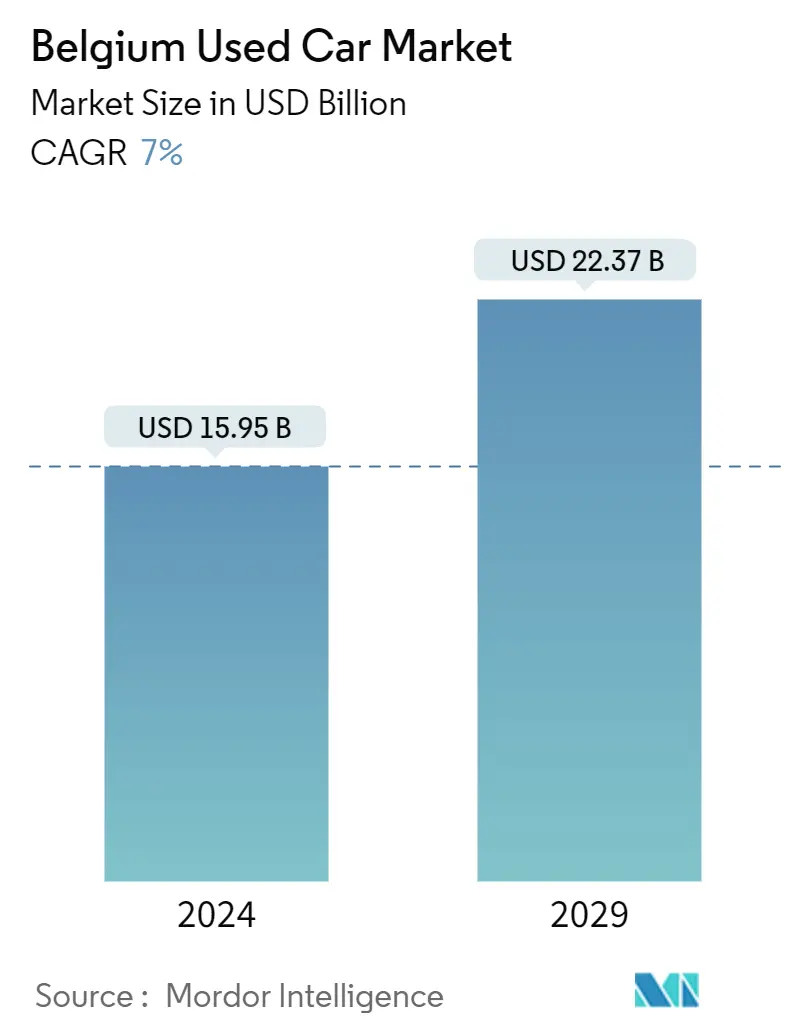
The average age of cars on Belgian roads is around 9 years, which indicates a strong market for newer used vehicles. In fact, cars between 2 and 5 years old are particularly popular, accounting for about 40% of all used car sales.
Belgian buyers have some distinct preferences when it comes to used cars. They often look for vehicles that are:
- Well-maintained with low mileage
- Fuel-efficient
- From reputable brands
Popular brands of used cars in Belgium include Volkswagen, BMW, and Mercedes-Benz.
These three brands alone account for nearly 30% of the used car market. However, don't let that limit you - there's demand for a wide range of makes and models. It's all about finding the right niche for your business.
Keep in mind that Belgian buyers often prefer cars with lower CO2 emissions due to tax incentives.
This could be a selling point for more eco-friendly models. In fact, electric and hybrid vehicles have seen significant growth, with their share of the used car market doubling from 2% in 2018 to 4% in 2022.
Belgium's import regulations
Now, let's talk about the rules you need to follow when bringing cars into Belgium.
First and foremost, any car you import must meet both Belgian and EU safety standards.
Environmental standards are another crucial factor. Belgium, like many EU countries, has strict emissions regulations. These can vary depending on:
- The age of the vehicle
- The type of fuel it uses
- Its engine size
For used cars, there's an important distinction to be aware of. If a car is less than 6 months old or has less than 6,000 km on the odometer, it's considered "new" for tax purposes.
Anything beyond these limits is "used." This classification can affect the taxes and fees you'll need to pay, so keep it in mind when selecting vehicles to import.
Belgium also has specific rules about importing certain types of vehicles. For instance, there might be restrictions or additional requirements for:
- Classic or vintage cars
- Modified or customized vehicles
- High-performance sports cars
These rules can change, so always check official government websites for the latest information.
Documentation for importing vehicles to Belgium
When importing cars to Belgium as a trader, proper documentation is the key to a smooth import process. Let's break down each document you'll need but remember - the following documents are just the basics.
Depending on the specific circumstances of your import, you might need additional paperwork.
It's always a good idea to check with Belgian customs or a customs broker before starting the import process. They can provide the most up-to-date information and help you avoid any potential pitfalls.
Vehicle purchase invoice
This is your proof of purchase and a critical document in the import process. The invoice should clearly show the full price you paid for the vehicle, including any taxes. It must also include the seller's details and the vehicle's specifics such as make, model, year, and VIN. Ensure it's detailed and accurate, as Belgian customs may use this to determine the car's value for tax purposes.
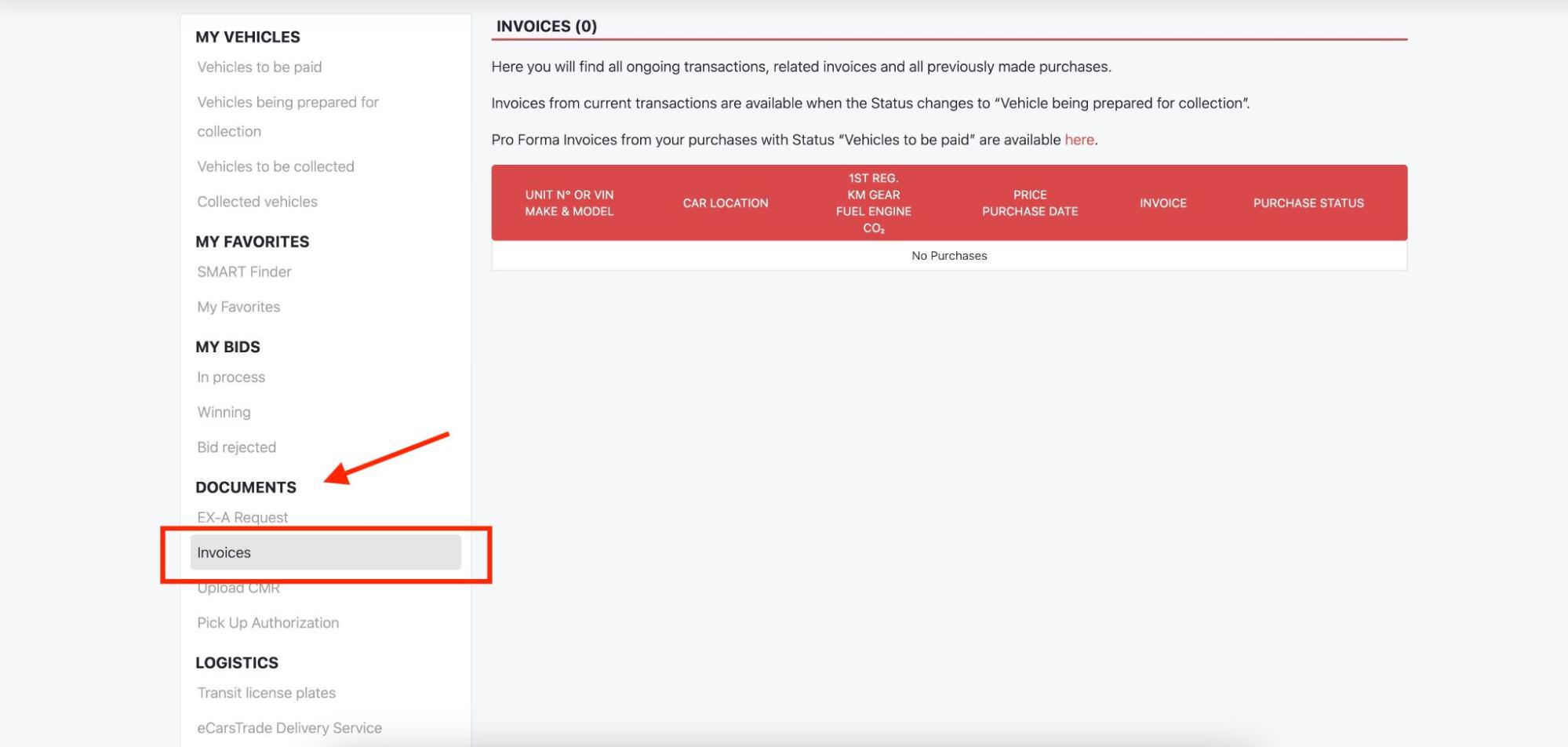
Certificate of Conformity
Also known as a CoC, this document proves the car meets EU technical standards. It's usually provided by the manufacturer. For cars made after 1996, it should be in the standard EU format. If you're importing a car from outside the EU, you might need an equivalent document. Without this certificate, you could face delays or additional costs. In some cases, you might need to get the car inspected to prove it meets standards.
Registration papers
You'll need the original registration documents from the country where you bought the car. This document shows the vehicle's history and ownership. It's important to note that photocopies aren't accepted - it must be the original. The details on this certificate should match those on other documents. If the registration is in a language other than Dutch, French, or German, you might need to provide a certified translation.
Proof of insurance
Before you can drive the car in Belgium, you need valid insurance. It's wise to get this sorted before you start the import process. Belgian law requires at least third-party liability insurance. The policy should cover the car from the moment it enters Belgium. Many insurance companies offer temporary coverage for imported vehicles, which can be useful if you're not sure how long the import process will take.
Customs declaration form
This form details the vehicle you're importing. You'll need to provide information about the car's make, model, year, value, and origin. Be thorough and honest when filling it out to avoid any issues with customs. Incorrect or incomplete information can lead to delays or fines.
VAT declaration
As a business, you'll need to handle VAT correctly. This form helps ensure you're complying with tax regulations. You'll need to declare the VAT status of the vehicle - whether VAT was paid in the country of origin, and if you're liable for VAT in Belgium. If you're VAT-registered in Belgium, you may be able to reclaim the VAT paid on imported vehicles.
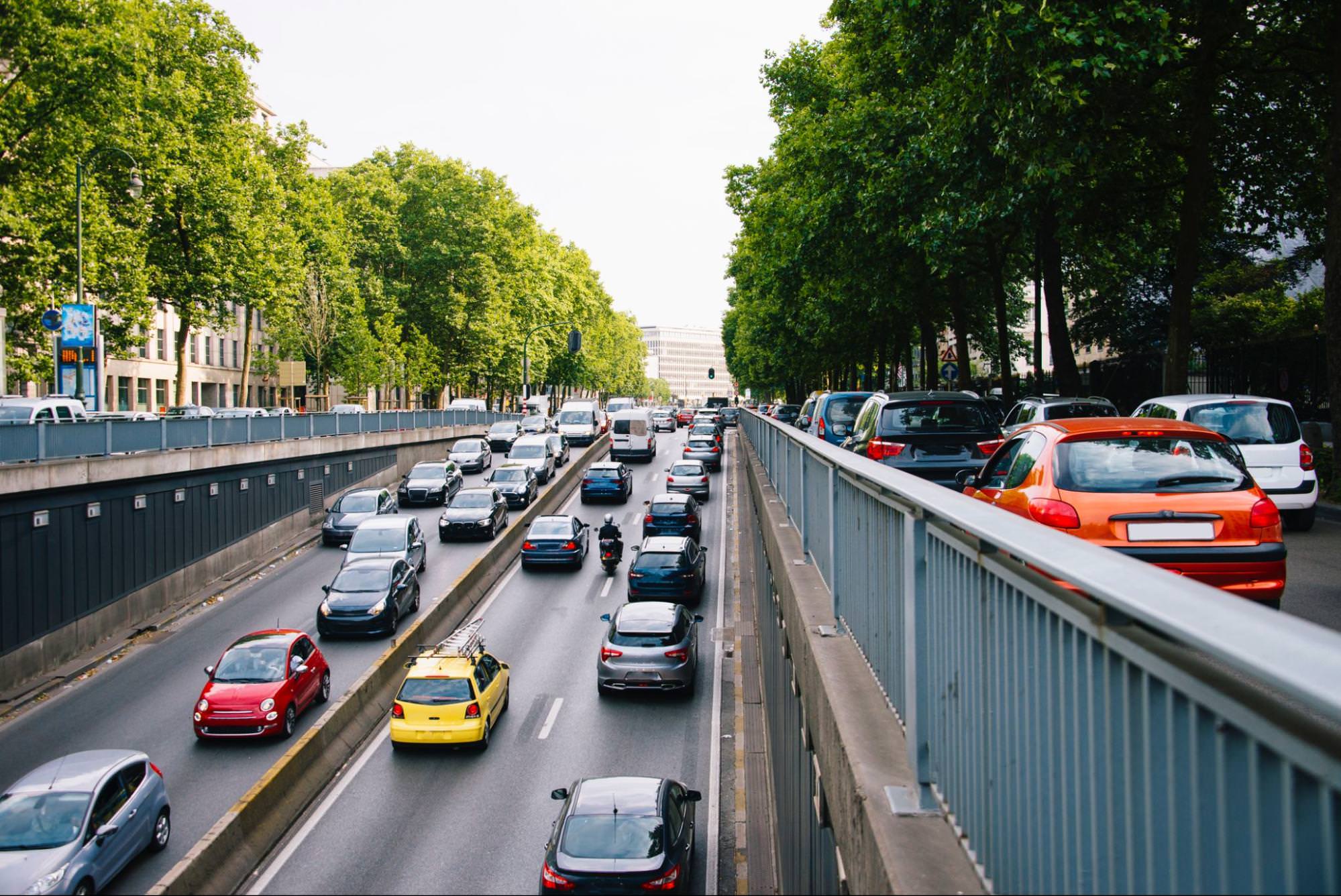
Taxes when importing a used car to Belgium
The tax landscape can be complex, but breaking it down will help you navigate it more effectively. Let's look at the main taxes you'll encounter.
VAT (Value Added Tax)
When importing cars from within the EU, you might not need to pay VAT again if it was already paid in the country of origin.
However, if you're importing from outside the EU or the VAT was not included in the vehicle’s purchase price (as is the case for most cars on eCarsTrade), you'll need to pay Belgian VAT, which is currently 21%.
As a business, you may be able to reclaim this VAT.
Registration tax
This tax varies depending on the car's power, age, and fuel type. It's calculated based on the car's fiscal horsepower and CO2 emissions.
The more powerful or polluting the car, the higher the tax. For example, a small, efficient car might incur a registration tax of a few hundred euros, while a large, high-performance vehicle could cost several thousand.
Newer, more environmentally friendly cars often benefit from lower registration taxes.
Excise duty
This applies to certain vehicle types, particularly those with high emissions. Luxury cars and vehicles with large engines are most likely to be affected. The rate can vary, so it's worth checking for each specific vehicle you plan to import.
Environmental tax
Belgium has implemented this tax to encourage the use of more environmentally friendly vehicles. The amount depends on the car's emissions and fuel type.
Electric and low-emission hybrid vehicles often benefit from reduced rates or exemptions.
Keep in mind that tax rates and rules can change, so always check the latest information from official Belgian sources.
Step-by-step process - From purchasing a car to importing it to Belgium
As a car trader, mastering the import process is key to your success. Let's dive deeper into each step, providing you with a comprehensive guide to bringing vehicles into Belgium.
1. Research and purchase
Use online platforms like eCarsTrade to find the right vehicles for your automotive niche. When you've identified a promising vehicle, carefully inspect the car's condition, history, and documentation.
eCarsTrade makes it easy for you to see exactly how much you will be paying for a car before you place any bids.
Browse through our selection of high-quality used vehicle auctions from Germany, France, Belgium, and the Netherlands.
Ensure you receive all necessary documentation, and if any documents are missing, factor in the time and cost to obtain them before proceeding.
For example, most French cars on eCarsTrade come without a Certificate of Conformity. However, you can easily obtain a COC through an online platform like EuroCOC.
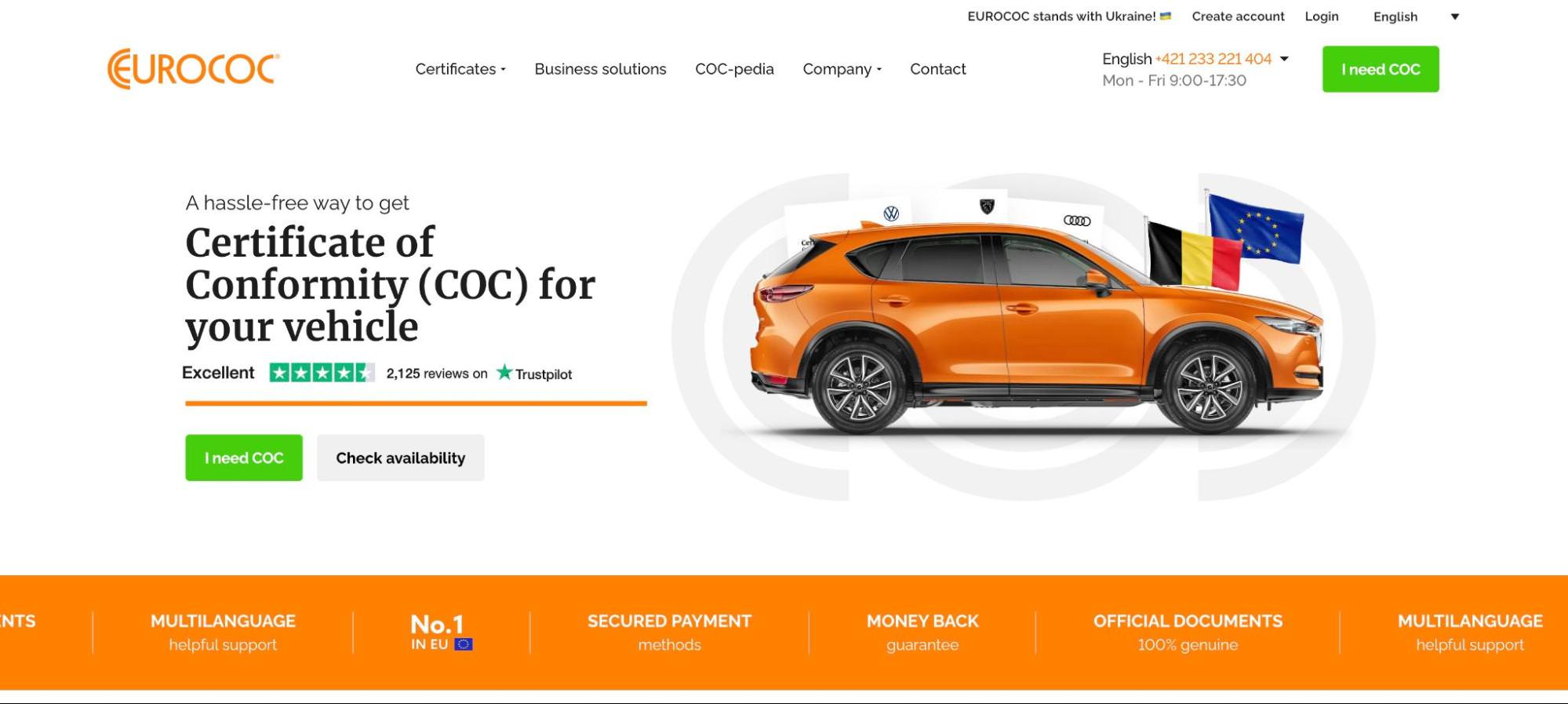
2. Arrange transportation
We always recommend professional car transport services to all our customers for safely transporting vehicles to their dealerships. They handle logistics and usually offer insurance for the journey. Get quotes from several providers to find the best deal.
Online auction platforms may even offer their own delivery options.
For traders who prefer not to deal with finding a transport service, we offer the eCarsTrade Delivery Service. We handle all the logistics and ensure your vehicles are delivered directly to your parking lot.
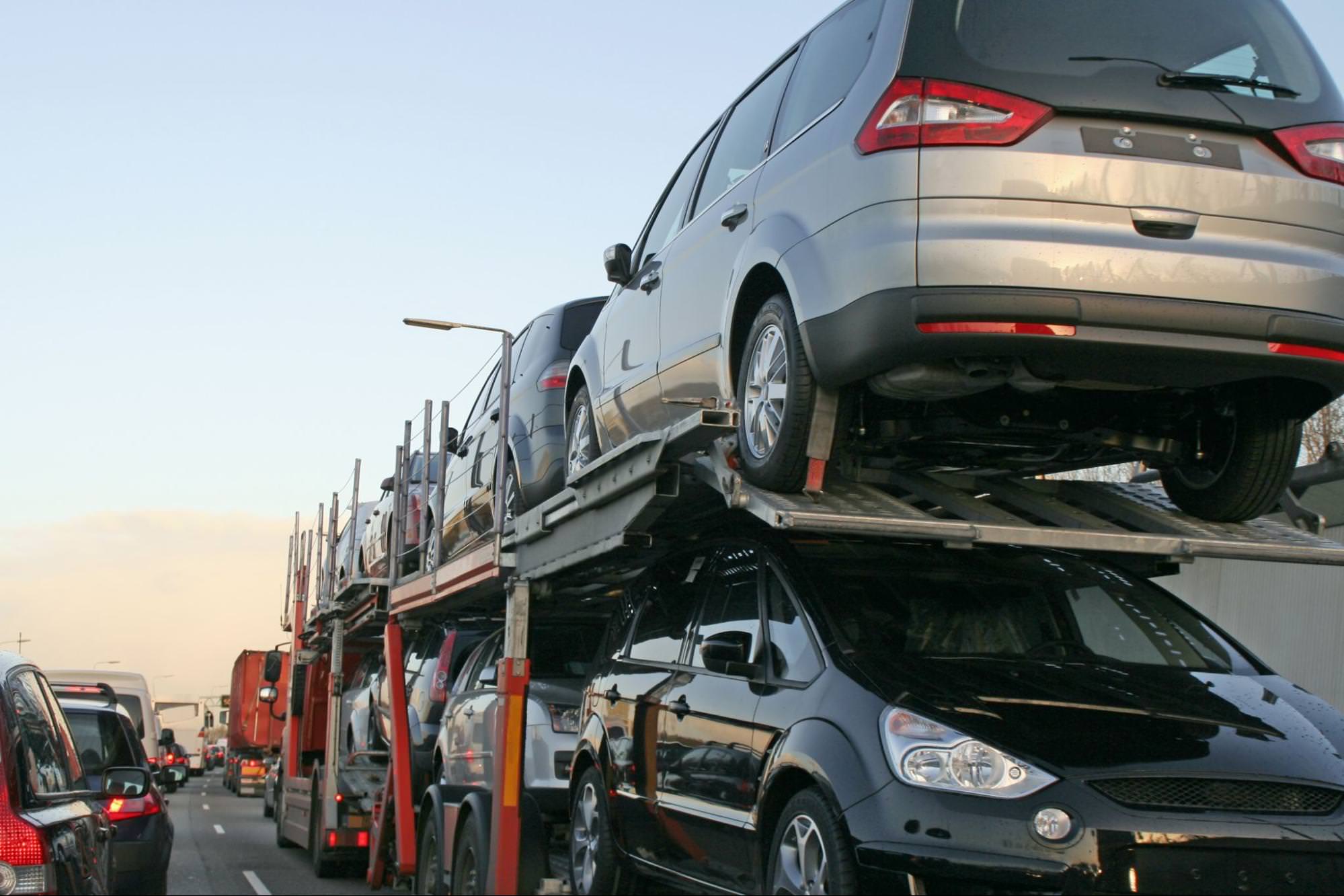
3. Obtain insurance
Insurance is a legal requirement in Belgium. You need at least third-party liability coverage from the moment the car enters the country. Many insurers offer specific policies for imported vehicles, often on a temporary basis until you complete the registration process.
4. Clear Customs, pay VAT, and obtain the E705
Informing Belgian customs about your imported vehicle is a crucial step.
You will need to make an appointment to go to a Customs office of your choice or complete this process online via MyMinfin.
To successfully submit a customs declaration form and obtain a E705 vignette, prepare these documents:
- Proof of residence
- The purchase invoice
- The original registration papers
At this stage you will also need to pay any possible import duties and VAT.
Import duties are calculated based on the customs value of the car.
The customs value = the car's price + any expenses before reaching the EU border (for example, transportation costs). The rate is typically 10% for passenger vehicles.
VAT is calculated at 21% on the cumulative amount of the customs value, import duties and any expenses (such as transport costs, etc.).
After the documents have been successfully submitted and the application for E705 has been finalized, Customs will send you the E705 vignette.
5. Pass technical inspection
After you have received your E705 vignette, your cars now needs to pass technical inspection in an approved Belgian inspection center, either in Flanders or Wallonia.
Prepare these documents when you go the technical inspection:
- E705 vignette
- Original registration papers
6. Register the vehicle
Once the car passes inspection, you can register it.
Visit a DIV (Vehicle Registration Service) office with your documentation. You'll need:
- Pink registration application form (you will receive this either from Customs or your insurance)
- Proof of insurance
- Technical inspection certificate
- Original foreign registration document
- Your business VAT number
The DIV will process your application and issue a Belgian registration certificate.
At this point you will also need to pay the vehicle registration tax (BIV - Belasting op Inverkeerstelling).
The registration tax is calculated based on the car's:
- Age
- Engine power
- CO2 emissions
- Fuel type
This tax can be substantial, especially for high-powered or less eco-friendly vehicles. Factor this into your pricing strategy when selecting cars to import.
You can estimate the amount of BIV you need to pay by using the online tax simulator, but the amount is just an estimate.
7. Get Belgian license plates
After registration, you'll receive Belgian license plates.
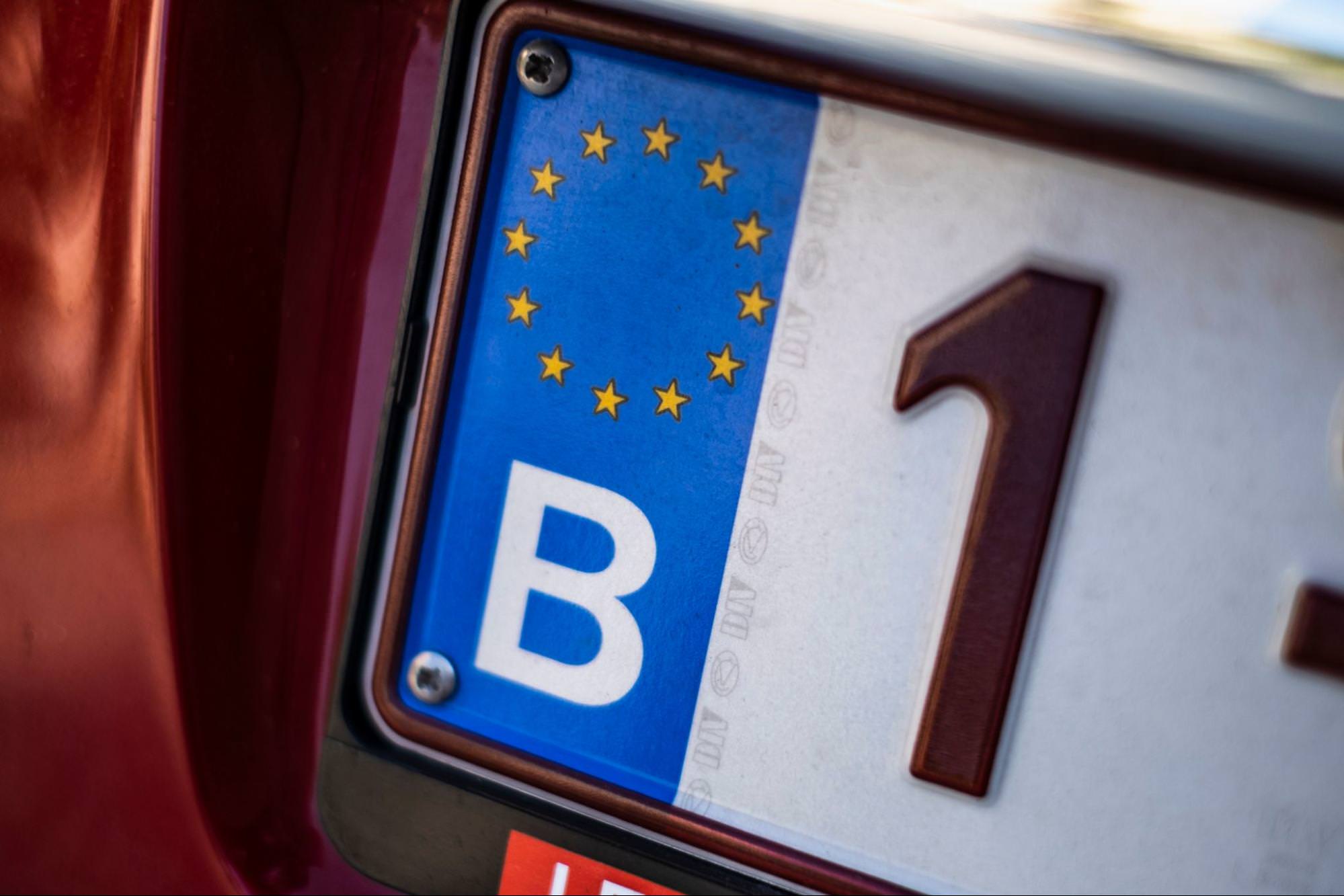
Importing a car to Belgium - FAQ
As a car trader, you might have some specific questions about importing vehicles to Belgium. Here are answers to some frequently asked questions:
► Can I import any car I want?
While you can import most cars, some restrictions apply. Vehicles must meet EU safety and emissions standards. Cars over 25 years old may have different import requirements.
► Are there any advantages to importing electric or hybrid vehicles?
Yes, eco-friendly vehicles often benefit from lower registration taxes and may be eligible for certain incentives. This can make them attractive options for import.
► Can I start selling the car before I receive the Belgian license plates?
No, the car must be fully registered and have Belgian plates before you can legally sell it. However, you can start marketing it while waiting for the paperwork to be completed.
How often do import regulations change?
Regulations can change annually, particularly regarding emissions standards and tax rates. Stay informed by regularly checking official sources or consulting with a customs broker.
Conclusion
Importing cars from the EU to Belgium presents a lucrative opportunity for car traders. While the process may seem daunting at first, experience will help you streamline operations and increase profitability.
With careful attention to detail and a strategic approach, car importing can evolve into a thriving component of your automotive business.
As you gain experience, you'll establish your unique presence in this dynamic market. Here's to your success in the world of car importing!
Importing vehicles from Europe can be complex, but eCarsTrade is here to simplify the process. Learn how to:


